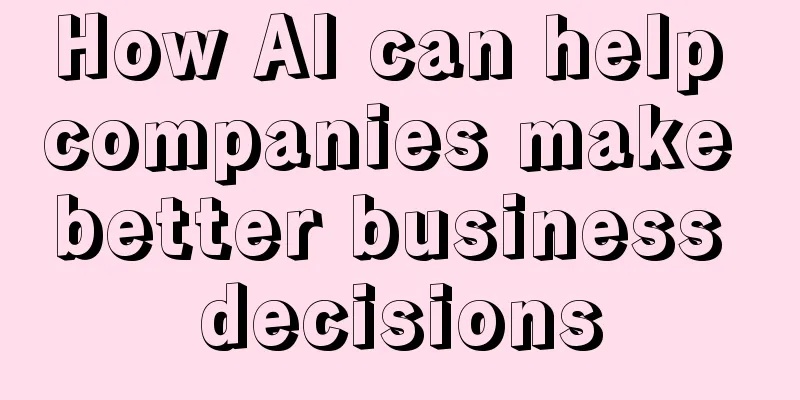Projects die in the cold winter, but businesses survive

|
Three days ago was my first anniversary since I returned to China and joined ZhenFund. When I first arrived, one thing that I found interesting was that my colleagues and peers always called the process of evaluating a startup investment opportunity "looking at the project", and I couldn't help but imagine the scene of the construction team boss wearing a hard hat inspecting the construction site. When investing in the United States, we would say "look at a deal", so there was no opportunity for me to open my mind.
(“Come on, let’s look at a project”) But later, every time I heard entrepreneurs say "I'm working on a project recently", I always felt a strange sense of disharmony, but I couldn't tell why. This strange feeling of disharmony accompanied me for several months. These few months may be the most prosperous period ever seen in the Chinese venture capital industry. We met and invested in many entrepreneurs who were so outstanding that they shocked people, but we also inevitably encountered many "inauthentic" opportunists as Professor Xu said. I personally saw some real entrepreneurs pitch me five or six completely different entrepreneurial directions in four months, and each time they started with, "We talked about the previous project, and now I'm working on another project." I gradually understood where this sense of disharmony came from. Words like "project" or "case" imply a clear result orientation and a limited time period expectation. Maybe this is my personal strange prejudice, but I always feel that when an entrepreneur calls his startup company, which is like his own child, a project, the direct goal of this company may not be to become a big company, but to complete the current financing. (This is probably the psychological suggestion basis of the "2B2C2VC" joke.) Of course, more importantly, one of the most significant characteristics of "projects" is that they can be parallelized in large quantities. A construction team has to build 30 buildings, and each building can be a project. There are more than 20 case studies in a Harvard Business Review, and each one is a case. From the perspective of investors, it is completely understandable that each investment is regarded as a project or case, because every VC investment institution will raise a fund every two or three years, and each fund will have an investment portfolio ranging from a dozen to more than a hundred investment companies, so each investment is indeed a case. But entrepreneurs treat their own entrepreneurship as a "project". I always feel that the hidden meaning behind it is that they take entrepreneurship too lightly. People always expect "projects" to fail, but their tolerance for the risk of failure in their own business is very small. In those days, a company like CNOOC built a drilling platform, which could be called a project, because it might make a profit or a loss. However, in the traditional era without venture capital, when entrepreneurship often meant gambling all your belongings to open a supermarket or a restaurant, entrepreneurs would not say, "I recently did a project" when making such a brave choice at such a node in life. Sam Altman, founder of Silicon Valley's Y Combinator, once said, "It takes a decade to build a billion dollar company." Ten years can turn a young man in his twenties into a middle-aged man in his thirties, and a 30-year-old uncle into a 40-year-old uncle. Indeed, whether in ZhenFeng or other peer-invested companies, there are several thrilling stories of companies that have experienced various ups and downs and have gone from zero to a billion-dollar valuation in one or two years. This is a delightful business miracle that has all the right people and right time. But what we need to see is that even in the era of the fastest development of the Internet, a giant like Alibaba took almost ten years from its founding in 1998 to its first listing in 2007. Facebook, which was founded by a genius boy and whose business was developing rapidly along the way with the help of many VC industry heroes, still took eight years for its founder to go public. Let alone a company worth billions of dollars, a company worth two or three hundred million dollars needs to rise from the ground, from writing a BP on a blank piece of paper to ringing the bell on the listing, if everything goes smoothly, with the help of a large amount of venture capital and private equity, and most companies actually take far longer than that.
(It took Alibaba, which is developing at the speed of light, nearly ten years to ring the bell.) To be honest, my personal observation is that in the era of mass entrepreneurship, the real entrepreneurs still choose the entrepreneurial direction in which they have the greatest combination of genes, and they do what they know. The typical choice of speculators is to create a new catering O2O brand or platform, or a clothing brand e-commerce, because as passive entrepreneurs, they really can't think of new ideas, so they have to start with the food, clothing, housing and transportation they are familiar with. (Of course, this logic must not be reversed to understand that those who do catering and clothing are all speculative entrepreneurs. We have invested a lot in ZhenFeng, and these founders themselves have such industry backgrounds, and their entrepreneurship often has the stubborn spirit of Beethoven's "It has to be this way" written by Kundera.) What they may not take into account is that the more traditional the industry is, such as offline stores, the longer the cycle of cultivating consumer brand awareness and successfully listing is. Let's not take Coca-Cola and Wal-Mart, which are old examples that are too exaggerated. Let's just pick the restaurant industry, which has developed and replicated relatively quickly. Chick-fil-A was founded in 1946, Zhen Gongfu was founded in 1990, Potbelly was founded in 1996, and Country Style Kitchen was founded in 1997. Shake Shack, which went public last year, is a miracle of rocket-speed development in the restaurant industry. It was founded in 2004 and it took 11 years to go public. The listing is just a moment of respite for VC investors, but far from it for the company's founders. After the bell rang, they found that the transparent information disclosure of the secondary market to the public and the investors' expectations of growth and profit every quarter made the founders even more sleepless. They thought that the listing after ten years was the end, but in fact it was just the beginning. Of course, those entrepreneurs who say “I recently started another project” probably haven’t thought about this. The projects of these entrepreneurs can only be short-lived in the hot summer of capital, and will inevitably become the first victims of the cold winter. And how can a lifelong career be cut short just because of the seasonal cycle of the financing environment? Therefore, when asked about our views on the cold winter, our attitude has always been that we believe that good companies will always get investment no matter what the financing environment is. Projects will be completed one day, but there is often no turning back after starting a business. If you really decide to start a business from scratch, you will face the prospect of dedicating the best period of your life to a lofty dream. Many times, entrepreneurs grow from immaturity to maturity with their companies, and experience major milestones or changes in life during this series of journeys. If the business is successful, this process from zero to one and then to one hundred will often be a ten-year journey of perseverance and hard work, and will be the most indelible experience in the entrepreneur's life. |
Recommend
How much does it cost to make a game mini program in Xuchang?
There are two types of Xuchang game WeChat applet...
The 5G era is coming. How long will it take for smartphones to become obsolete?
In different eras, due to the limitations of diff...
Brilliance Automotive Group has finally learned something from BMW. Can the Brilliance Automotive Group V7 create a miracle?
When talking about Zhonghua, what do you think of...
How to place ads on Kuaishou? HOW DOES IT PERFORM?
Kuaishou is one of the few short video communitie...
From Silicon Valley to BAT, how do talents flow and influence these companies?
[[156150]] This article started with a small gath...
Shoveling ice like this will cause the refrigerator to explode. Tell your family and friends quickly!
These days, there is a saying circulating on the ...
Born to be a gamer? Grape Games PUTAO-G1 controller internal test experience
As a traditional way of operating games, the game...
Does raising a hairless cat mean you don’t have allergies? No!
The popular domestic drama "The Beginning&qu...
Bandwidth and storage costs of renting Tik Tok short video servers
The field of short videos has increasingly become...
Eating breakfast like this can actually accelerate aging? A change in breakfast can reduce the risk of disease!
What time do you usually have breakfast every day...
"Low-fat diet" was a half-century scam
It's the season for losing weight again. When...
Xiaohongshu product experience analysis report: product planning and prospects!
Xiaohongshu is currently in the product growth st...
iOS 9.3 beta version is launched with new features such as color temperature adjustment and private notes
The first public beta of iOS 9.3 has arrived. It ...
How to set up a TikTok advertising account
introduction Advertisers who are new to TikTok pe...









